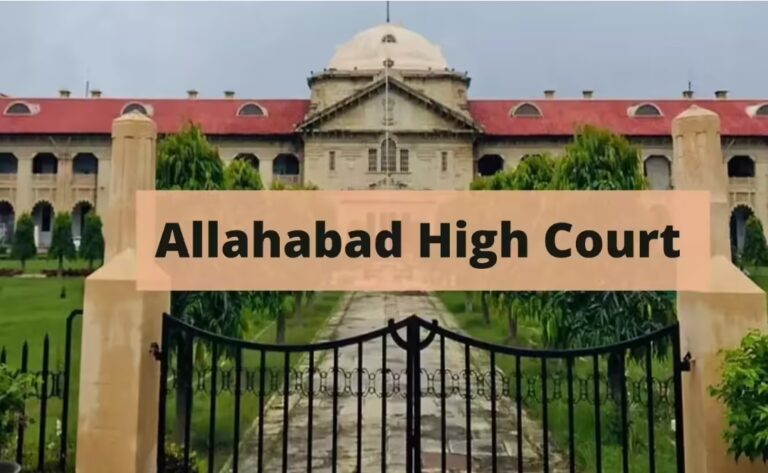The Allahabad High Court, in M/s Bala Ji Medical Agency v. State of U.P. (Writ Tax No. 867 of 2025, decided on 2 September 2025), set aside a show-cause notice (SCN) and the consequent order cancelling the petitioner’s GST registration. The Court held that fixing a personal hearing before the expiry of the reply period and failing to mention essential particulars such as the place of hearing amounted to violation of principles of natural justice. Emphasizing that procedural fairness cannot be bypassed even if the taxpayer has not filed a reply, the Court ruled that the cancellation order was unsustainable in law, though liberty was granted to the authorities to issue a fresh, valid SCN.
Facts & Procedural Background
- The petitioner, M/s Bala Ji Medical Agency (a proprietorship), held a GST registration (obtained in August 2022).
- It failed to file returns for certain periods.
- On 12 March 2024, the jurisdictional officer issued a show cause notice under Form GST REG-17, proposing cancellation of the registration on the ground of non-filing of returns. The notice allowed 30 days (i.e. up to 12 April 2024) to submit a written reply.
- However, the very same notice fixed a date of personal hearing on 09 April 2024, i.e., before the expiry of the reply period.
- The notice also failed to specify the venue or place of hearing.
- The petitioner did not file any reply to the SCN.
- On 02 May 2024, the Assistant Commissioner passed the cancellation order in Form GST REG-19, cancelling the registration by virtue of non-filing of returns.
- The petitioner challenged both the SCN and the cancellation order before the High Court by way of writ (Writ Tax).
Issues Raised
- Whether fixing a personal hearing date before expiry of the statutory reply period is valid.
- Whether the SCN (and consequent cancellation order) is defective for not specifying essential particulars (e.g., place of hearing).
- Whether the absence of a reply by the petitioner (i.e. petitioner not filing response) entitles the department to cancel the registration without more.
- Whether the cancellation order can operate retrospectively (i.e., whether registration is deemed void from a past date).
- Whether procedural fairness / natural justice principles were violated by the process.
Decision / Holding
The Division Bench (Justices Sangeeta Chandra and Brij Raj Singh) held as follows:
- SCN is legally defective
- The court observed that although 30 days were given to submit reply (till 12 April 2024), the hearing was fixed earlier on 09 April 2024, thereby curtailing the effective reply window.
- Because of this scheduling, the petitioner was forced (in effect) to appear before responding, contrary to the statutory design. The court held that such a notice is bad in law.
- Further, the SCN lacked the venue information, a material deficiency.
- These defects vitiated all subsequent proceedings.
- Cancellation order quashed
- Since the foundational SCN was invalid, the cancellation order of 02 May 2024 could not stand. The court quashed it.
- However, the court clarified that the Department is at liberty to issue a fresh, valid SCN and proceed in accordance with law.
- No retrospective effect
- The High Court held that where an SCN is defective (as in this case), the cancellation cannot be said to have retrospective effect. The cancellation is only valid from the date of the SCN (if a valid one is issued).
- The court did not nullify the registration ab initio (i.e. from the past).
- Requirement of fairness / natural justice
- The judgment underscores that in quasi-judicial proceedings, proper opportunity to reply and hearing must be given; a procedural infirmity (such as prematurely fixed hearing or lack of clarity) is fatal.
Thus, the court quashed both the SCN and the cancellation order, leaving open the path for fresh proceedings by a valid SCN.
Key Takeaways / Legal Principles
- An SCN that simultaneously fixes hearing before expiry of the reply period is impermissible, as it shortens the statutory opportunity to respond, and such a defect invalidates the proceeding.
- Essential particulars (such as venue of hearing) constitute a mandatory requirement; omission of these is a material defect.
- A defective SCN cannot be “cured” downstream; the invalidity carries through to the cancellation order.
- Cancellation cannot be given retrospective effect where the SCN itself is defective — registration remains valid until a valid cancellation is effected.
- Even if an assessee does not respond to the SCN, procedural requirements must be satisfied; non-filing of reply does not by itself justify a flawed procedure.
-
The judgment reinforces the importance of reasoned orders, fair hearing, and procedural safeguards in tax / GST administration.
